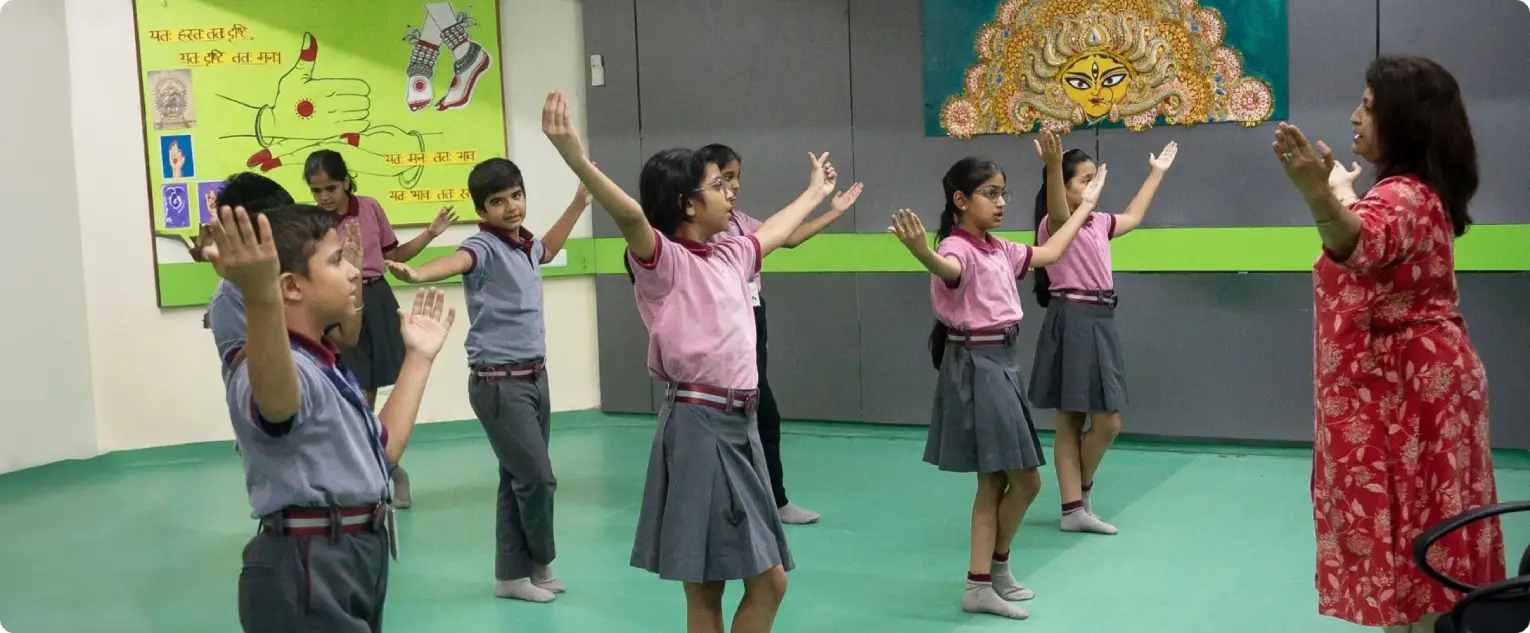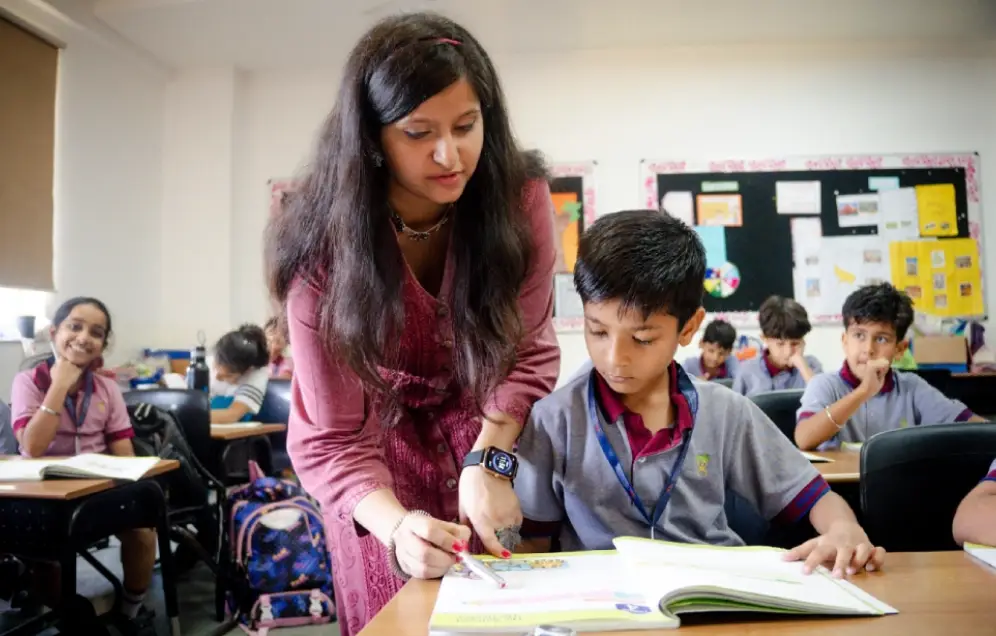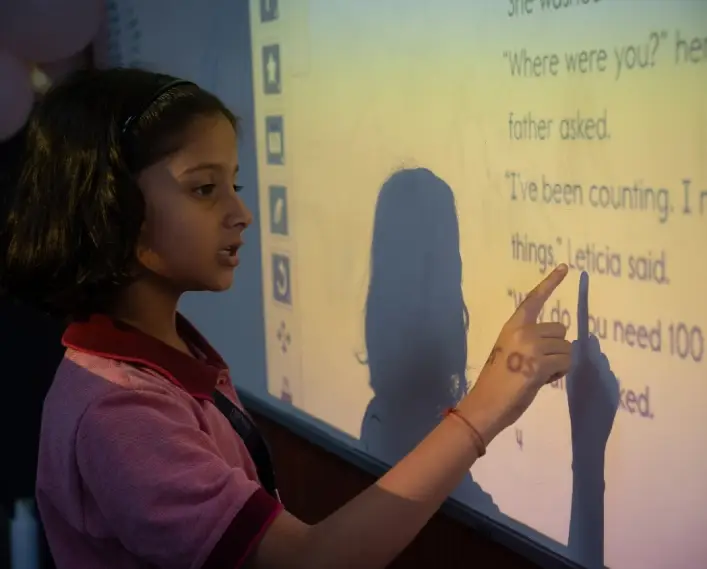Primary Years Curriculum
The primary curriculum aims to provide a well-rounded education that supports children's intellectual, emotional, social, and physical development during their formative years in school.
Our endeavour is to nurture holistic development by discovering the child’s innate talents, foster their curiosity through experiential learning and develop them into mindful human beings.



Core Subjects
These include English, Hindi, Numeracy and CREST (Conceptual learning through Reasoning, Exploration, Skilling and Technology). These subjects form the basis of a child’s literacy, numeracy, and scientific understanding.
Foundation Subjects
These include subjects such as Future Skills and Sustainability (FS&S), Visual Arts, ICT, Performing Arts (Music and Dance), Sport and Well-being (SWB), and Grade V onwards a third language is introduced. A choice between Sanskrit, French, German and Spanish is given. These subjects provide a broad and balanced education, introducing children to different areas of knowledge and skills.


Key Components of the Primary Curriculum
-
1
Personal, Social, Health and Economic Education (PSHE)
This focuses on developing children’s personal and social skills, health education, and understanding of economic concepts appropriate to their age.
-
2
Soft Skills Education (SE)
In MRIS, SE forms part of the primary curriculum, helping them acquire personal attributes, habits, social skills to navigate real life situations effectively.
-
3
Assessment and Progression
Primary curricula include mechanisms for assessing children’s progress, through continuous evaluation and assessments from Grade V. It supports a variety of pedagogical approaches and strategies with assessment central to learning and teaching.
-
4
Special Educational Needs (SEN) Provision
MRIS schools have provisions within the primary curriculum to support children with special educational needs, ensuring that all children can access and benefit from education.
-
5
Tinkershala
The Tinkering Projects in the program, which link SDGs and STEM activities, primarily incorporate design solutions, industry connect, entrepreneurship, innovation, SDG plug-ins (economic, social, climate, and environmental), self-awareness and values, 21st-century skills, and life skills.
-
6
ICT
Aimed at fostering digital citizenship, students are taught fundamental concepts and engaged in age-appropriate activities to develop understanding of functioning and applications of computers, create enriching digital content and most importantly use it responsibly.
-
7
CREST
CREST – Interdisciplinary Curriculum (Science & Social Science). It aims at instilling 21st-century learner skills in children, motivating them to inquire as a means to seek answers. The effective instructional strategies and pedagogical practices aim to create unique and engaging learning experiences for children to learn through experimentation, investigation, demonstration, and application.
-
8
Parents Involvement
Opportunities to encourage parents and grandparents to actively get involved in various school functions and activities like story-telling, book fairs, reading, parent-educator conferences, and sharing their knowledge with students as well as teachers.
 Go to School Home
Go to School Home Go to Corporate Home
Go to Corporate Home